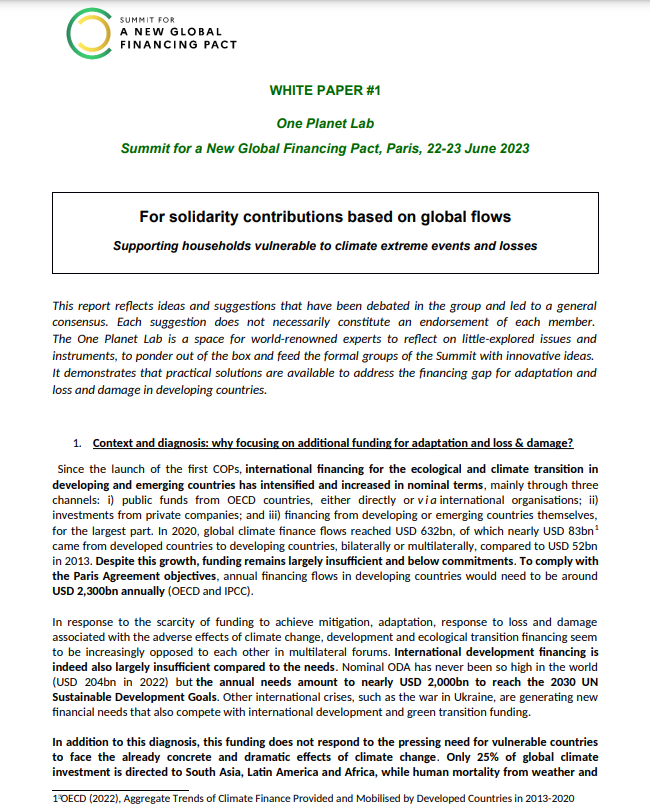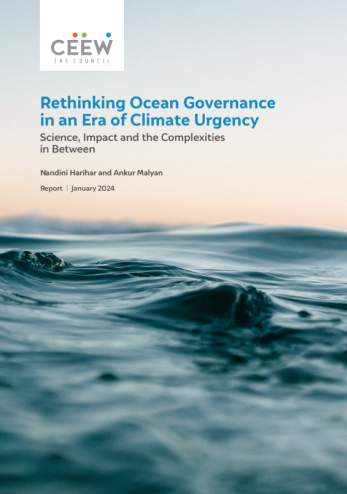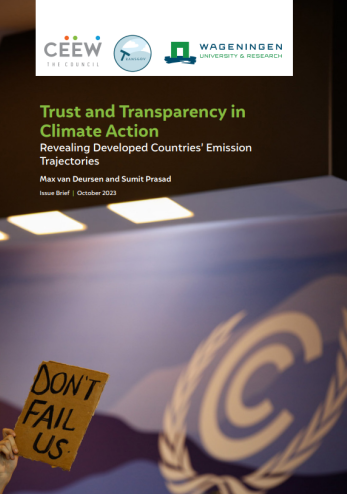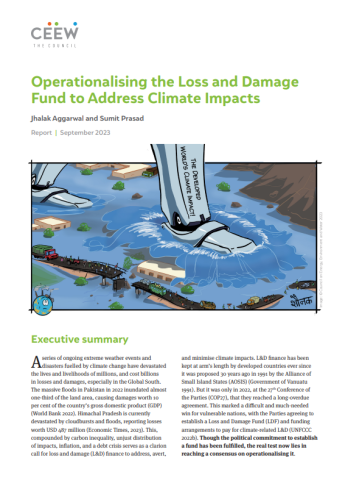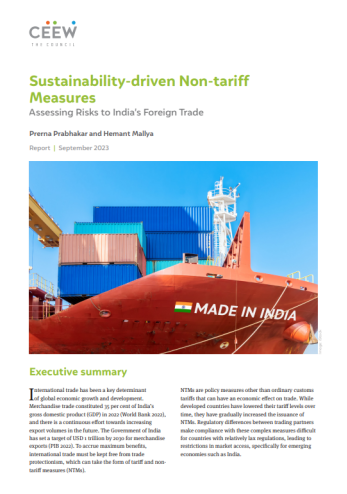Other Publications
For Solidarity Contributions Based on Global Flows
Supporting Households Vulnerable to Climate Extreme Events and Losses
One Planet Lab
June 2023 | International Cooperation
Suggested citation: One Planet Lab. 2023. For Solidarity Contributions Based on Global Flows: Supporting Households Vulnerable to Climate Extreme Events and Losses. One Planet Lab.
Overview
Climate finance for developing countries is still largely insufficient and below commitment levels. This white paper by One Planet Lab, released ahead of French President Emmanuel Macron’s Summit for a New Financing Pact in Paris, argues that developing countries affected by the dire consequences of climate change need additional financing for adaptation, and access to emergency funding to respond to loss and damage. The barriers to that have been lack of investment from private actors, public financing in developing countries, and low resource mobilisation. Addressing these need solidarity contributions based on global flows against climate extreme events and losses. There are several advantages to global flows of finance: It does not impinge on the fiscal sovereignty of countries, it has limited inflationary effects, and it targets unevenly taxed carbon flows, whether goods, services or assets.
Key Recommendations
The paper suggests new ways to mobilise new resources by tapping into global flows.
- From production of fossil fuels: The easiest would be a contribution charged for each ton of coal, barrel of oil or cubic meter of gas extracted at a level that would reflect how much CO2 is embedded in each ton of fossil fuel extracted. A $1 contribution per barrel of oil would generate around USD 30 billion per year. Another option would be the creation of voluntary one-off solidarity contributions from fossil fuel exporters and large State-owned companies, calculated on the turnover related to extractive activities.
- From maritime transportation of goods: Despite accounting for 3 per cent of greenhouse gas emissions, maritime transport is under-priced for its externalities on a global scale. The One Planet Lab suggests an international carbon tax or excise duty on international shipping activity and linked to carbon emissions. By taxing more than 1,000 MtCO2 emitted annually by the sector, this global minimum tax could generate up to USD 100bn per year.
- From transportation of fossil fuels: This could entail the introduction of a solidarity contribution on tankers, as a condition for access to insurance. The contribution should remain low, in order to avoid an increase in energy costs and affect the trade competitiveness of the countries from which the energy originates, which are often developing countries.
"Only 25% of global climate investment is directed to South Asia, Latin America and Africa, while human mortality from weather and climate extreme events was 15 times higher in these regions."




